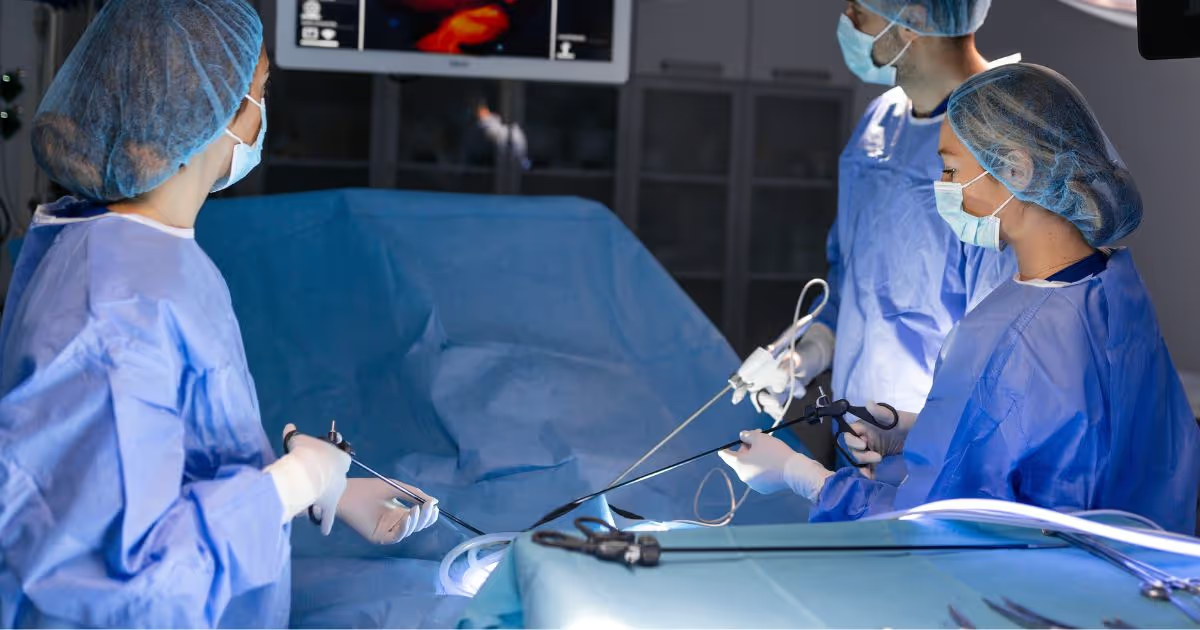Choose the content to read
- Minimally invasive heart surgery (MIS HEART)
- Candidates for minimally invasive heart surgery
- What are the risks of minimally invasive heart surgery?
- Benefits of minimally invasive heart surgery
- Preparation before undergoing minimally invasive heart surgery
- Minimally invasive heart surgery procedures
- How should one recover after minimally invasive heart surgery?
Minimally invasive heart surgery (MIS HEART)
Minimally invasive heart surgery enables a surgeon to access the heart through small 2-3-inch incisions. Compared to traditional open-heart surgery, MIS surgery can effectively address various heart conditions with reduced pain and faster recovery, improving the patient’s quality of life.
Candidates for minimally invasive heart surgery
MIS surgery may not be appropriate for all heart procedures. Your doctor will evaluate its suitability for you. Heart procedures that are amenable to minimally invasive heart surgery include heart valve repair or replacement, a maze procedure for atrial fibrillation, closure of atrial septal defect, or removal of a heart tumor.
What are the risks of minimally invasive heart surgery?
Minimally invasive heart surgery carries the same risks as open-heart surgery, such as bleeding, infection, irregular heartbeat, heart attack, stroke, or even death.
In some circumstances, the doctor may consider changing from MIS to open-heart surgery if the latter is deemed safer.
Benefits of minimally invasive heart surgery
There are numerous benefits of MIS heart surgery. Smaller incisions result in minimal scarring, less blood loss, decreased blood transfusion, and shorter postoperative endotracheal tube dependency. Patients require shorter hospitalization and experience less postoperative pain with faster recovery and a lower risk of complications.
Preparation before undergoing minimally invasive heart surgery
- Food and medications: Check with your doctor if you can keep taking your regular medications and how long to stop taking foods and drinks before the procedure.
- Clothing and personal items: Do not wear nail polish or jewelry to the hospital. Remove contact lenses, eyeglasses, dentures, or hearing aids before the procedure. Bring comfortable clothing to wear on the day you are discharged.
- Family: Discuss your health condition, symptoms, hospital stay, and home recovery with your family. You will require their assistance upon returning home.
Minimally invasive heart surgery procedures
- Before minimally invasive heart surgery
The nursing staff will remove chest hair with a clipper and clean and disinfect the skin in the operative area to prevent infections. - During minimally invasive heart surgery
The surgeon will make small incisions between the ribs to insert a camera-tipped thoracoscope so the surgeon can see the internal organs. Cardiopulmonary bypass will take over the function of your heart and lungs. Following this, the surgeon carries out heart surgery using slim surgical instruments inserted through separate incisions. - After minimally invasive heart surgery
Patients will be under close care in the intensive care unit. They will receive fluids and medication intravenously, oxygen through a face mask or nasal cannula, and operative field fluids drained through drainage tubes. Patients will stay in the intensive care unit for two days and then proceed with their recovery in a typical hospital ward. The medical team and nurses will monitor vital signs, observe signs of infection, manage postoperative pain, assist patients in movement, and teach diaphragmatic breathing exercises and coughing techniques to clear mucus from the airways. They will recuperate in the hospital ward for another 3-5 days.
Before the discharge, your healthcare team will provide guidelines to adhere to during your recovery. These instructions will encompass monitoring for indications of infection, tending to your incisions, administering medications, and effectively managing any discomfort or pain. Discuss with your doctor when you can resume driving, working, or exercising.
How should one recover after minimally invasive heart surgery?
After surgery, it is advisable to undergo regular heart health checkups to assess heart function. Simultaneously, patients should lead a heart-healthy lifestyle, such as consuming nutritious food, exercising regularly, and managing stress. For smokers, quitting is recommended. In addition, cardiac rehabilitation aids in improving heart function.




